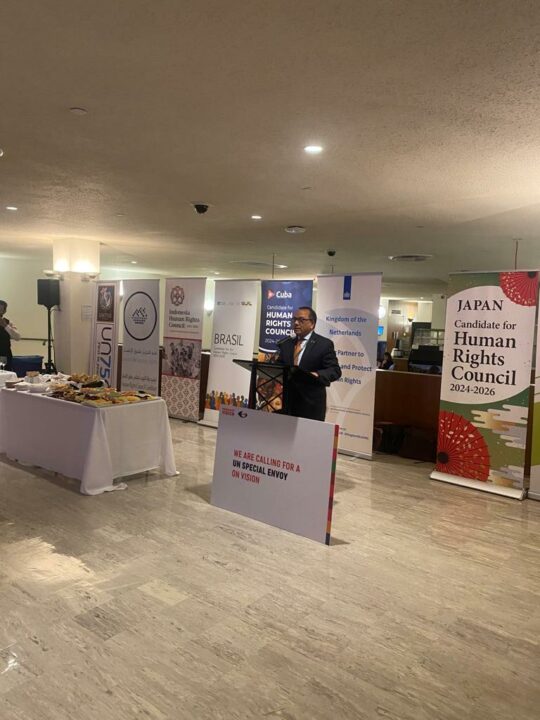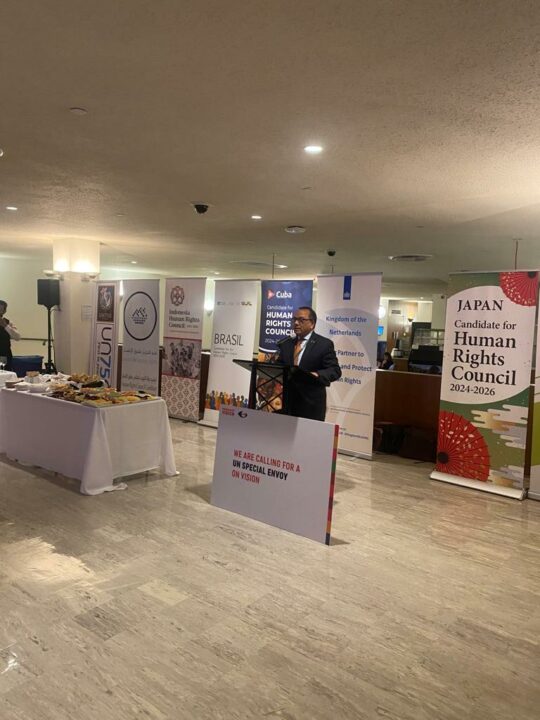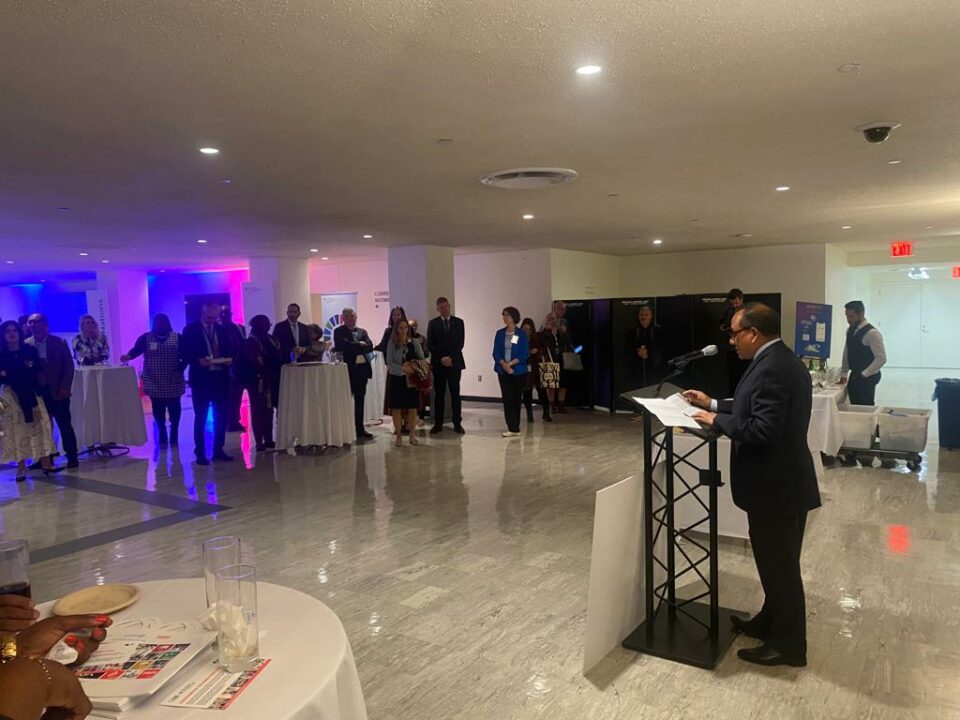Excellencies,
Distinguished Guests,
Ladies and Gentlemen,
A very good evening to you all.
I am deeply honored to be here this evening at this momentous “2030 IN SIGHT” exhibition, a remarkable collaboration between the UN Friends and Vision group, the World Health Organization, and the Love Your Eyes campaign.
At the outset, I would like to thank the Permanent Mission of Antigua and Barbuda and the Permanent Mission of Ireland to the UN, the other two co-chairs of the UN Friends and Vision group, for supporting this exhibition.
I appreciate the Deputy Permanent Representative of Ireland being here tonight. Although Ambassador Webson from Antigua and Barbuda couldn’t join us in person, I want to sincerely thank him for his invaluable leadership.
I would also like to express our deep appreciation to our valued partners, the WHO and the International Agency for the Prevention of Blindness for their unwavering support in organizing tonight’s enlightening exhibition.
Excellencies, distinguished guests,
This exhibition is a profound embodiment of a critical message that deserves our unwavering attention. The message is clear and resounding: eye health is not merely an individual concern but a global imperative.
Through this immersive exhibition, we are granted a unique perspective into the world as seen by those burdened by avoidable sight loss. The narratives and experiences shared within these walls issue a rallying cry.
They remind us of our collective responsibility to ensure equitable access to eye care for all, regardless of their circumstances. As we view these powerful narratives, we are urged to redouble our efforts in addressing avoidable blindness and vision impairment on a global scale.
Distinguished guests,
Bangladesh has been at the forefront of global initiatives to combat blindness. From that conviction, Bangladesh, together with Antigua and Barbuda and Ireland introduced the first ever resolution A/RES/75/310 entitled “Vision for Everyone: accelerating action to achieve the Sustainable Development Goals”, which was adopted unanimously by the General Assembly.
This resolution urges Member States to provide universal access to eye care, aiming to assist over 1.1 billion people without eye services by 2030.
We are here to recognize that poor eye health is far more than a mere medical diagnosis; it represents a historic missed opportunity. On average, the loss of sight costs the global economy a staggering amount of $411 billion in productivity each year. It hinders a nation’s capacity to eradicate poverty, ensure access to education, promote decent work, and reduce the pervasive inequalities that persistently hold people back.
Distinguished guests,
Global eye care is intrinsically tied to the achievement of the Sustainable Development Goals, and it holds the key to improving the lives of millions of people worldwide. When we speak of Universal Health Coverage, we must recognize that it encompasses the provision of comprehensive eye care.
During the recent high-level week, leaders and ministers from 15+ countries gathered to discuss the significance of eye health. They emphasized the role of eye health in achieving UHC and encouraged countries to include eye health plans in their Voluntary National Reviews.
Over 75 governments have already pledged their support to the need for a UN Secretary-General’s Special Envoy on Vision to champion this cause and align it with the SDGs. I urge you all to join us in this call.
Please sign your name and join the call for the Envoy on vision today.
Together, we can ensure that eye health is central to SDG and leave no one behind.
I thank all of you for your commitment to a world where everyone can see clearly, dream big, and thrive.
*************



